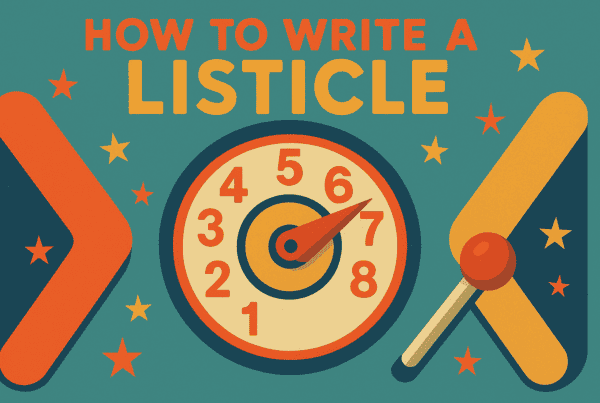Frequently Asked Questions About AI Writing Training for Lawyers
Is AI writing training compliant with legal ethics rules and professional conduct obligations?
Yes, when done properly. Our training specifically addresses the ethical frameworks in Australia (including recent Practice Notes and other guidelines), plus guidance from international bar associations. In our longer formats, we cover competence obligations, supervision duties, disclosure requirements and how to maintain compliance while using AI tools. The training teaches lawyers how to use AI as a drafting assistant while maintaining full professional responsibility and meeting ethical obligations around client care and quality control.
Can lawyers use AI writing tools without breaching client confidentiality?
Absolutely - with the right protocols. We teach lawyers how to structure prompts that never include identifying client information, how to anonymise matter details, when to use enterprise AI platforms with enhanced privacy protections, and how to create internal governance frameworks that protect privilege. The training includes specific workflows for confidential matters, litigation-sensitive documents and high-stakes commercial work. You learn to harness AI's power while maintaining absolute client confidentiality and privilege protections.
How much does AI writing training for law firms cost?
AI writing training for legal teams starts at $2,075+GST for a 90-minute workshop "Write Better, Faster" workshop (up to 12 lawyers), ranging to $8,950+ for our comprehensive AI Accelerator program that builds a complete practice group-specific AI Writing Operating System. Firm-wide and multi-office programs are custom-priced. Most law firms see substantial ROI within 90 days through faster document production, reduced associate hours on routine drafting, and improved matter economics.
What will lawyers actually learn in AI writing training?
Lawyers learn to build a complete AI Writing Operating System for legal practice: reusable prompt libraries for contracts, opinions, correspondence, court documents and client communications; firm-specific voice and tone guardrails; quality control and review workflows; governance frameworks that maintain ethical compliance; and document-type templates mapped to your actual precedents. We build this live during the workshop using your firm's real documents, so you leave with a working system ready to deploy immediately - not just theory.
How much time do lawyers save using AI writing tools after training?
Lawyers can save up to 40-60% of time on first-draft creation for routine documents like contracts, correspondence, memoranda and client updates. More complex work like court submissions, opinions and transactional documents can see 25-40% time savings. Associates spend less time on repetitive drafting and more time on substantive legal analysis. Partners report better matter economics and improved work-life balance for their teams.
What types of legal documents can AI help lawyers draft?
AI excels at contracts (NDAs, service agreements and employment contracts), client correspondence and updates, internal memoranda, research summaries, matter chronologies, court submissions and affidavits (with proper review), discovery documents, opinion letters, transaction documents, corporate resolutions, policy drafts and marketing content like articles and thought leadership. The training teaches you which document types benefit most from AI assistance, where human judgment is non-negotiable and how to structure workflows for each category.
Do lawyers need technical skills or AI experience to learn this?
No. If you can use Word or Google Docs and email, you can learn this. We've trained partners who've never used ChatGPT and junior lawyers already experimenting constantly with AI. The training is designed for legal professionals, not technologists. We focus on practical legal workflows and document production - no coding, no technical jargon, just better, faster legal drafting with proper safeguards.
How do we ensure AI-generated legal content is accurate and reliable?
This is central to our training. Lawyers learn to build multi-layer quality control: prompt design that reduces hallucination risk, verification protocols for citations and legal authorities, structured review checklists, version control systems and supervision frameworks. We teach the "trust but verify" approach - using AI to accelerate drafting while maintaining rigorous professional review. You'll also learn to identify AI's weaknesses (like case law citation) and structure workflows that compensate for these limitations.
What AI writing platforms and tools does the training cover for legal work?
The training is platform-agnostic and works with ChatGPT, Claude, Google Gemini, Microsoft Copilot, legal-specific AI tools like Harvey or CoCounsel, or proprietary firm platforms. We teach the underlying principles of effective legal prompting, document workflow design, and risk management that transfer across any AI system. The focus is building a durable operating system that works regardless of which AI tool your firm adopts or how the technology evolves.
How is this different from Harvey AI, CoCounsel or other legal-specific AI platforms?
Legal AI platforms are software tools. We teach lawyers how to think and work with any AI platform effectively. Harvey and CoCounsel are excellent tools, but they don't teach your lawyers optimal prompting, workflow design, risk management or how to build firm-specific systems. Our training makes your team better at using any AI tool - including those legal platforms. Many firms train with us specifically to maximise their investment in legal AI platforms they've already purchased.
How long does AI writing training take for legal teams?
Our core programs range from 90 minutes to 2 full days. The "Write Better, Faster" workshop is a 1.5-hour introduction to AI-assisted legal drafting. The full-day "AI Writing OS Workshop" builds an AI writing system in 3.5 hours. The "AI Accelerator" is a one-day immersive that includes strategy, precedent integration, governance design and firm-wide rollout planning. Most lawyers are productively using AI for daily drafting within 48 hours of completing training.
Do you offer AI writing training for multiple practice groups or large law firms?
Yes. We can train large commercial firms, boutiques, government legal departments and in-house legal teams across multiple practice groups and offices. We can customise training for different practice areas (litigation, corporate, property, employment, etc.) and scale across your firm's structure. Multi-practice group programs include shared governance frameworks plus practice-specific prompt libraries. Contact us to discuss custom programs for your firm.
How quickly can our lawyers start using AI after the training?
Immediately. Every session includes a comprehensive PDF toolkit with ready-to-use legal prompts, document templates, quality control checklists, and governance frameworks. By the end of training, your lawyers have a working AI Writing OS built using your firm's actual precedents and documents. There's no implementation delay. You leave with a system that's already tested on your work and ready to deploy the next business day.
What if our legal team doesn't see results from the AI writing training?
If your lawyers don't show measurable improvement in drafting speed, document quality or matter efficiency within 30 days, we'll audit what's happening and re-train your team at no additional cost. That's our guarantee. We're invested in your firm's success, not just delivering a workshop.



